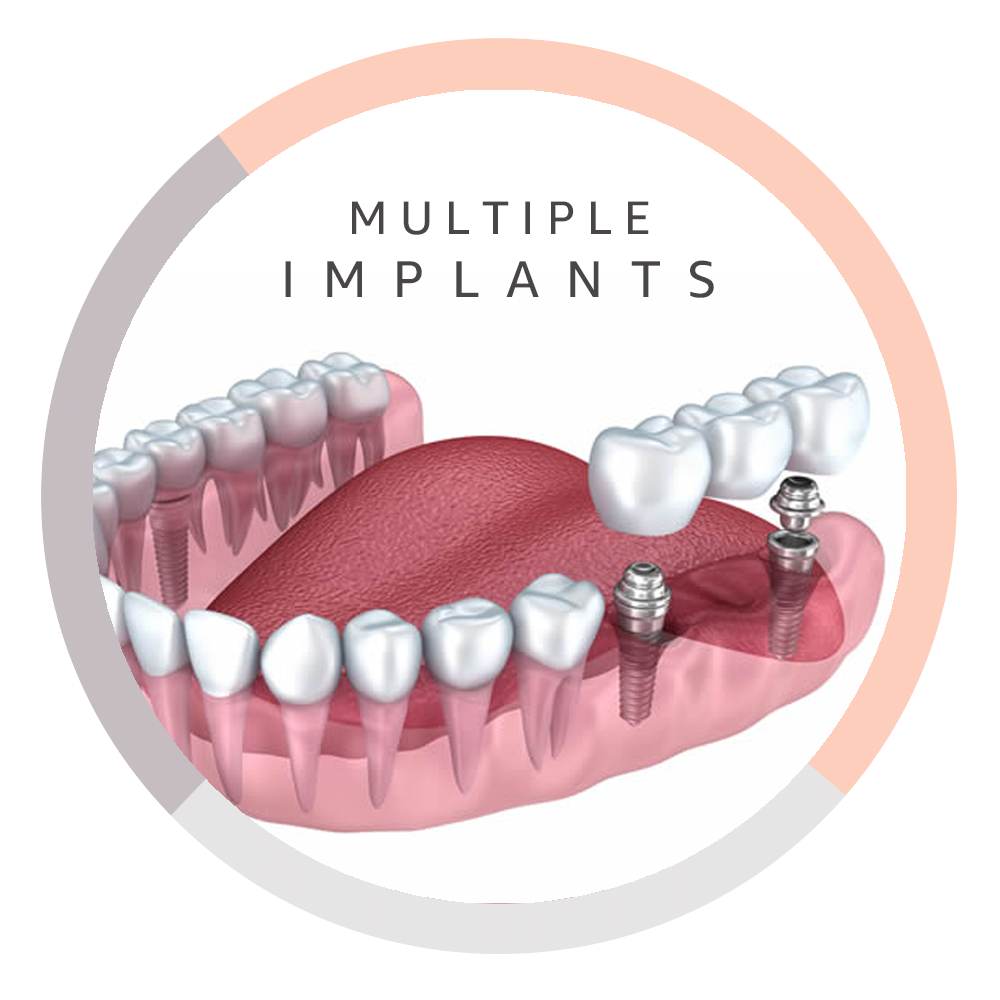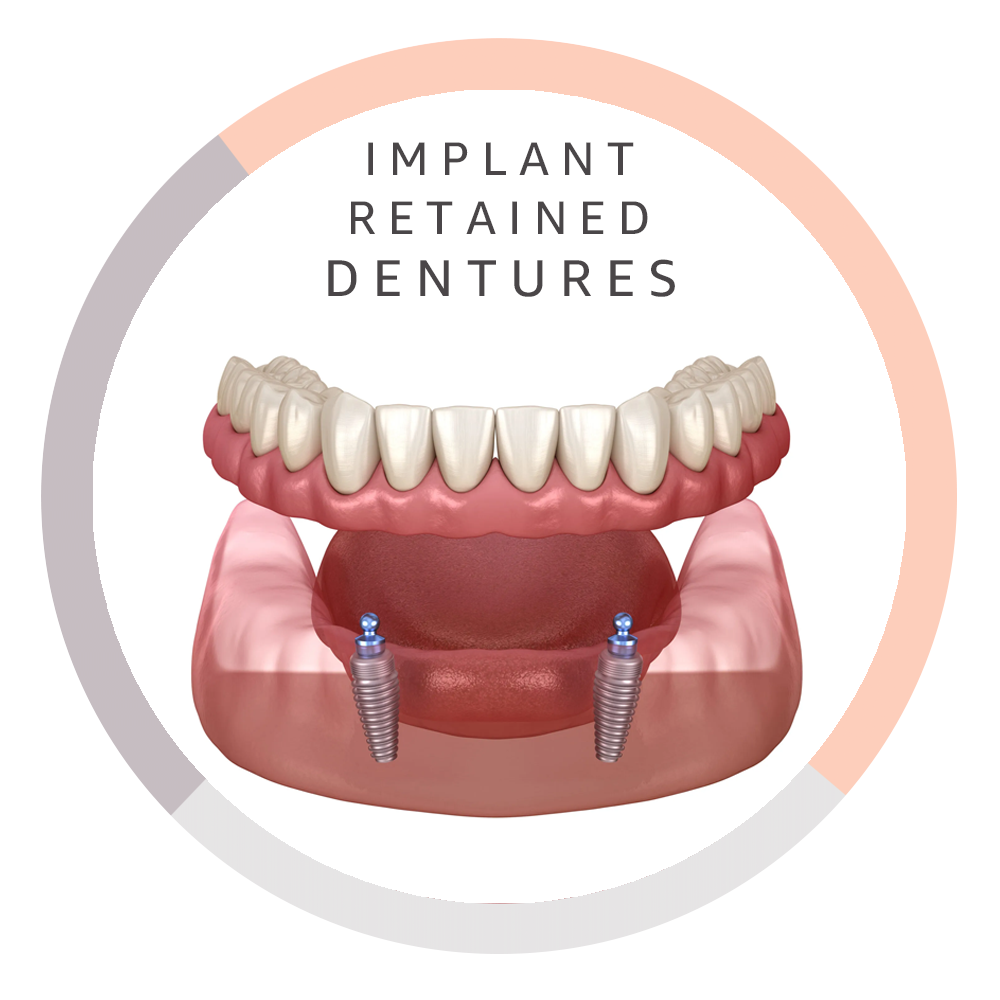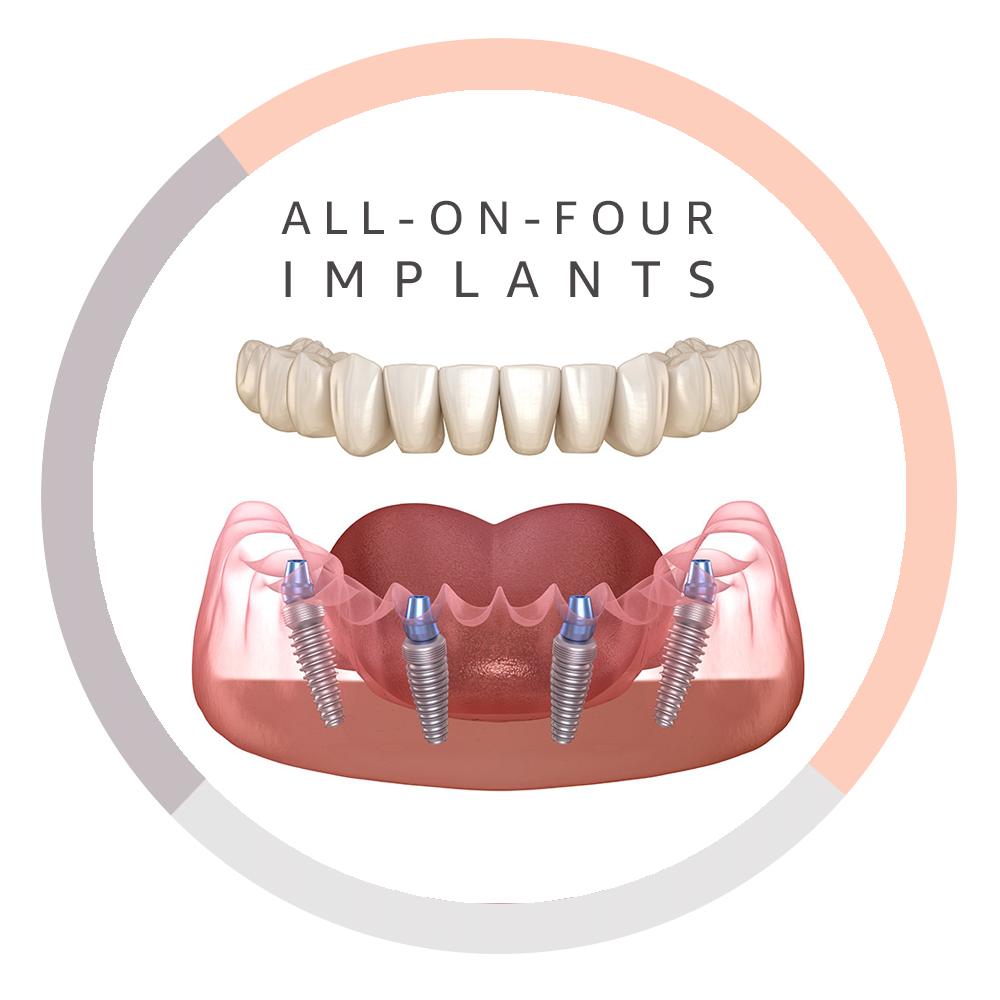Dental Implants
Home / Dental Implants
Dental Implants
Dental implants are a popular option for people who have lost teeth due to decay, injury or disease. Dental implants can be used to replace a single tooth or multiple teeth, and can even be used to support dentures. There are different types of dental implants available, including single implants, multiple implants, implant-retained dentures, and all-on-four implants.
In this blog post, we will discuss each of these options in detail:


Single Implants
Single implants are used to replace a single missing tooth. A dental implant is surgically placed into the jawbone, where it fuses with the bone over a period of several months. A crown is then placed on top of the implant to provide a natural-looking and functional replacement tooth.
Single implants have many advantages over other tooth replacement options, such as bridges and dentures. They look and function like natural teeth, and can be cared for just like natural teeth. They also help to preserve the jawbone, as the implant stimulates the bone just like a natural tooth root.

Multiple Implants
Multiple implants are used to replace two or more missing teeth. Like single implants, multiple implants are surgically placed into the jawbone, where they fuse with the bone over a period of several months. Once the implants have fused with the bone, a bridge is attached to the implants to provide a natural-looking and functional replacement for the missing teeth.
Multiple implants have many advantages over other tooth replacement options, such as partial dentures. They look and function like natural teeth, and can be cared for just like natural teeth. They also help to preserve the jawbone, as the implants stimulate the bone just like natural tooth roots.

Implant-Retained Dentures
Implant-retained dentures are used to replace multiple missing teeth, and are a great option for people who are missing most or all of their teeth. With implant-retained dentures, dental implants are placed into the jawbone and a denture is attached to the implants. The denture is removable, but is held securely in place by the implants.
Implant-retained dentures have many advantages over traditional dentures. They are more stable and secure, which means that they do not slip or move around in the mouth like traditional dentures can. They also help to preserve the jawbone, as the implants stimulate the bone just like natural tooth roots.

All-on-Four Implants
All-on-four implants are used to replace all of the teeth in a single arch of the mouth (either the upper or lower arch). With all-on-four implants, four dental implants are placed into the jawbone, and a fixed denture is attached to the implants. The denture is permanent and cannot be removed by the patient.
All-on-four implants have many advantages over traditional dentures. They are more stable and secure, which means that they do not slip or move around in the mouth like traditional dentures can. They also help to preserve the jawbone, as the implants stimulate the bone just like natural tooth roots. All-on-four implants can also be placed in a single day, which means that the patient can leave the dental office with a fully functioning set of teeth.
Conclusion
Dental implants are a great option for people who have lost teeth due to decay, injury or disease. They offer many advantages over other tooth replacement options, such as bridges and dentures. Single implants are used to replace a single missing tooth, multiple implants are used to replace two or more missing teeth, implant-retained dentures are used to replace multiple missing teeth, and all-on-four implants are used to replace all of the teeth in a single arch of the mouth. Each of these options has its own advantages and disadvantages, and your dentist can help you determine which option is best for you based on your individual needs

